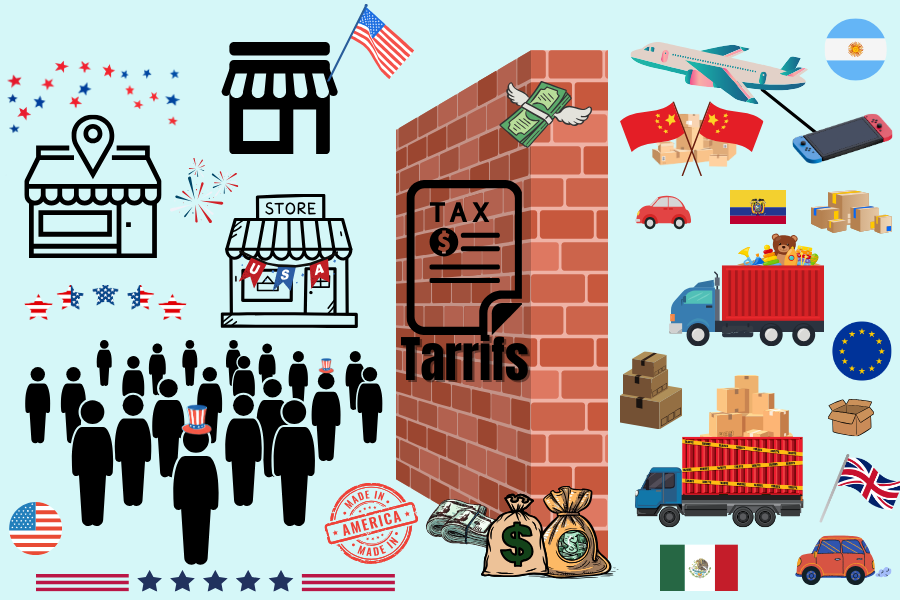It has been hard to miss the talk about tariffs and their impact on the prices of everyday goods. On April 2, President Donald Trump announced a universal 10% tariff on all imports, with higher rates for specific countries like China and the European Union. But stepping back, what exactly are tariffs?
Tariffs are simply a tax on imported goods into the country. Say someone bought a $999 iPhone 16 Pro, which are mostly manufactured in China. With the 145% tariff Trump imposed (though the amount varies by good), $1149 in tax would need to be paid to the government to allow the phone into the country (though smartphones are one of the few items exempt from the new tariff hikes). Typically, a majority of this cost is passed on to the consumer in the form of a price increase. But why?
Tariffs aim to make foreign goods more expensive, encouraging consumers to buy American-made products, which could boost domestic industries. However, establishing new manufacturing facilities takes time, so in the short term, consumers may face higher prices on various goods, from electronics to everyday items like makeup and clothing. In other words, tariffs don’t just affect companies or adults, they affect everyone.
“I wanted to order the Nintendo Switch 2, and didn’t realize I couldn’t. I didn’t know tariffs could affect things like that,” said Lucas Casado ‘28.
Nintendo had stopped all pre-orders of the Nintendo Switch 2 for Americans, as a majority of them are made in Vietnam, where tariffs coming from the Southeast Asian country are 46%. Recently, though, pre-orders have returned to their original price point due to tariffs on most nations being temporarily suspended.
Others are concerned about the price of daily items.
“This affects high school students a lot because we don’t have a major source of income,” said Jacob ‘25, after speaking on how coffee prices are going to rise because of these tariffs.
Some are concerned about the rising cost of living, further exacerbated by the tariffs, especially in such a volatile job market.
“Students who have limited money are forced to pay a steeper price for necessary goods while the job market continues to become more competitive,” said Aarsh Moodi, a business major at Rutgers University.
Prices also change based on the product, however. AP Economics teacher Ms. Lynne Tierney offered assurances that smaller items, like pencils, are considered “elastic” when talking in regards to their demand.
“So when the Dixon Ticonderoga Company faces a higher tariff cost for producing part of its pencils, it can’t increase the price of its pencils,” said Tierney. “If it does, people will stop buying pencils and will instead buy a substitute good.”
These tariffs are a double-edged sword. In the short term, they can be bad, and in the long term, the country will have to wait and see if the new factories promised to come to American shores materialize.
















































































